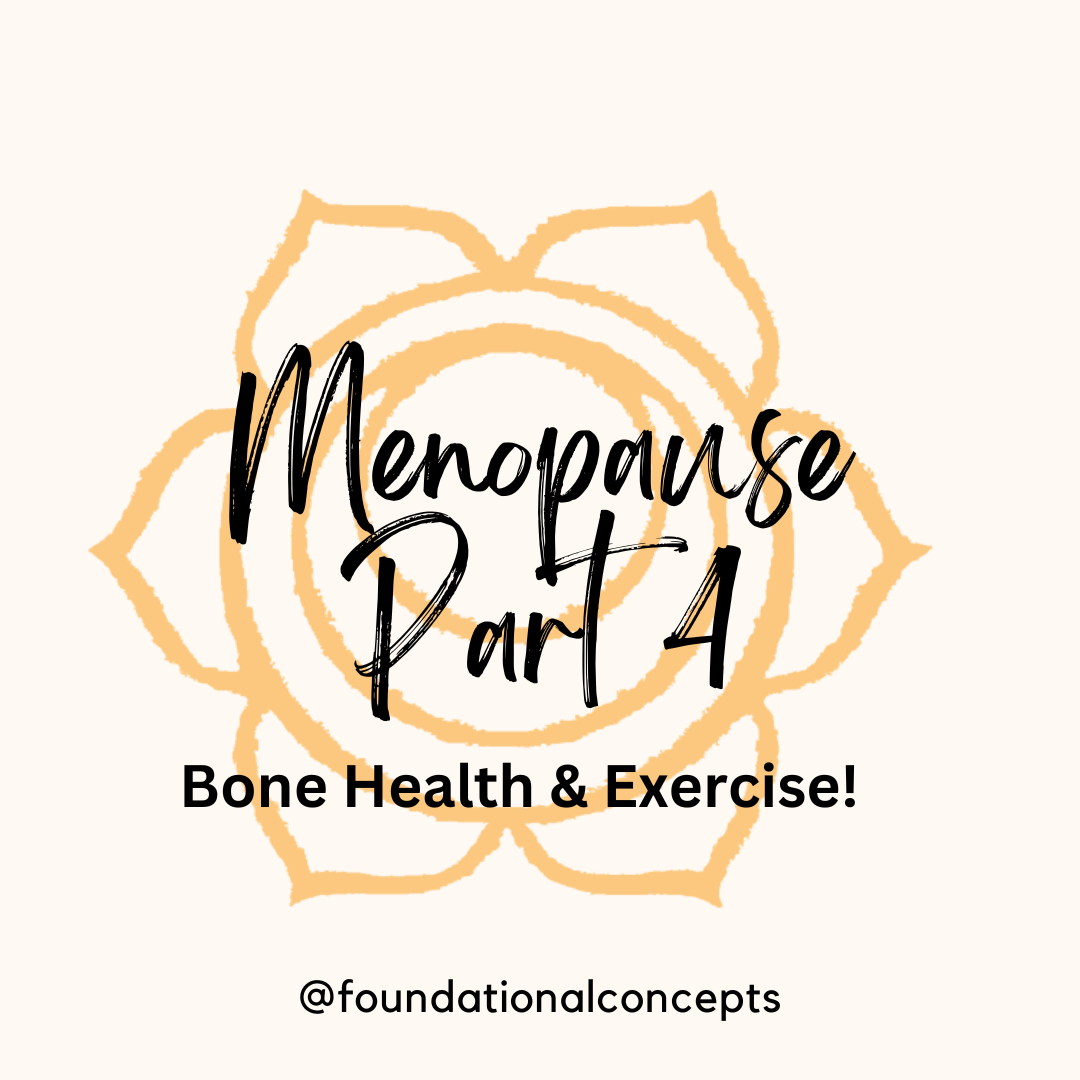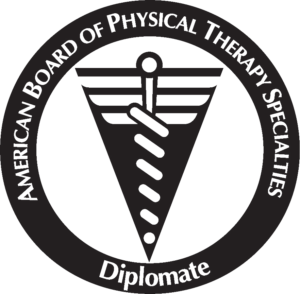Menopause is a point in time. It is when you have stopped having a period…

Menopause Part 4: Bone Health and Exercise
We know exercise is important for our mental, heart, muscle, and bone health throughout our lives. Exercise is the most powerful non-medication prevention of fractures in women. This is especially important for women after menopause. As estrogen goes down, our bones become less dense, and the chances of osteopenia and osteoporosis increases making the risks for fractures go up.
It is known that weight-bearing exercise improves bone health prior to menopause. More research is now being done with postmenopausal women and the results are exciting.
Dynamic resistance training is any exercise with resistance that involves joint movements. This focuses on the development of muscle strength. When muscles pull on bones, the osteoblasts are stimulated to make more bone to resist the pull of the muscles. For many years, it was assumed that we did not make significantly more bone after menopause. Recently, researchers are finding that specific exercises do make a difference in our bone health.
Here are the takeaways for building bone health after menopause:
- Frequency of exercise: It is important to complete resistance exercise more than 2 times a week for the best bone development.
- Resistance exercises: According to the research, free weight or resistance band exercises were more effective at building bone strength than weight machines or non-resistance-based exercises. With the resistance, it is important to lift heavier. Lower resistance and high repetitions do not show the same level of bone changes as high resistance and lower repetitions.
- Force through the bones: It is important to include fast walking to increase the weight bearing to 3x body weight.
- The biggest changes in bone density are seen immediately after starting a weight program, but changes continue to be seen for 2 years with continuous weight training.
As we age, it is so important to continue lifting and to continue to lift heavier resistance to continue to keep our hearts, muscles, and bones strong. On top of that, lifting heavy helps to prevent bones breaks as we age.
If you need pointers on how to lift, we would love to help you learn how to keep and increase your strength! We offer a free 15 minute phone consultation to answer any questions you may have.




